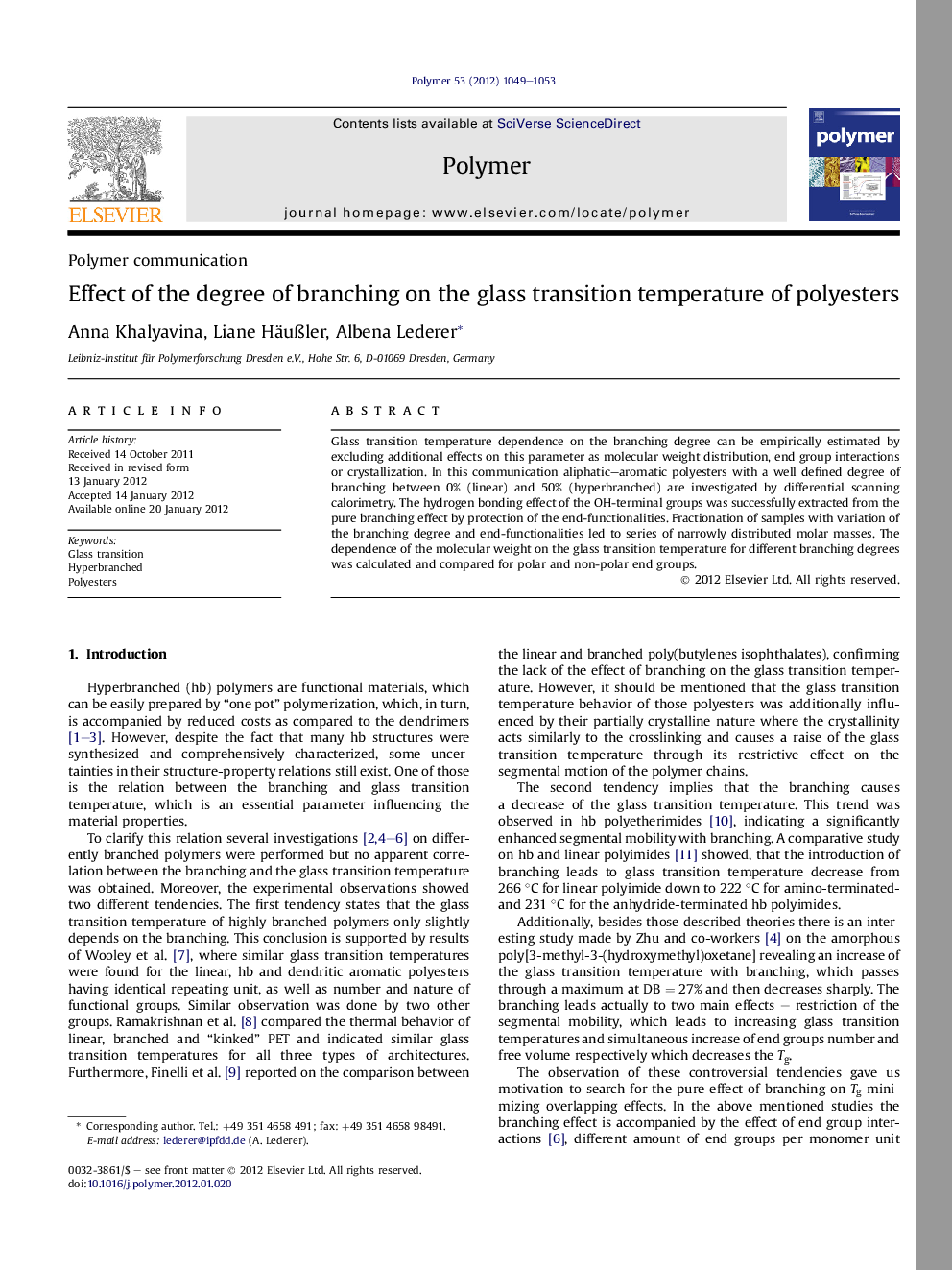| کد مقاله | کد نشریه | سال انتشار | مقاله انگلیسی | نسخه تمام متن |
|---|---|---|---|---|
| 5183528 | 1381021 | 2012 | 5 صفحه PDF | دانلود رایگان |

Glass transition temperature dependence on the branching degree can be empirically estimated by excluding additional effects on this parameter as molecular weight distribution, end group interactions or crystallization. In this communication aliphatic-aromatic polyesters with a well defined degree of branching between 0% (linear) and 50% (hyperbranched) are investigated by differential scanning calorimetry. The hydrogen bonding effect of the OH-terminal groups was successfully extracted from the pure branching effect by protection of the end-functionalities. Fractionation of samples with variation of the branching degree and end-functionalities led to series of narrowly distributed molar masses. The dependence of the molecular weight on the glass transition temperature for different branching degrees was calculated and compared for polar and non-polar end groups.
Journal: Polymer - Volume 53, Issue 5, 28 February 2012, Pages 1049-1053